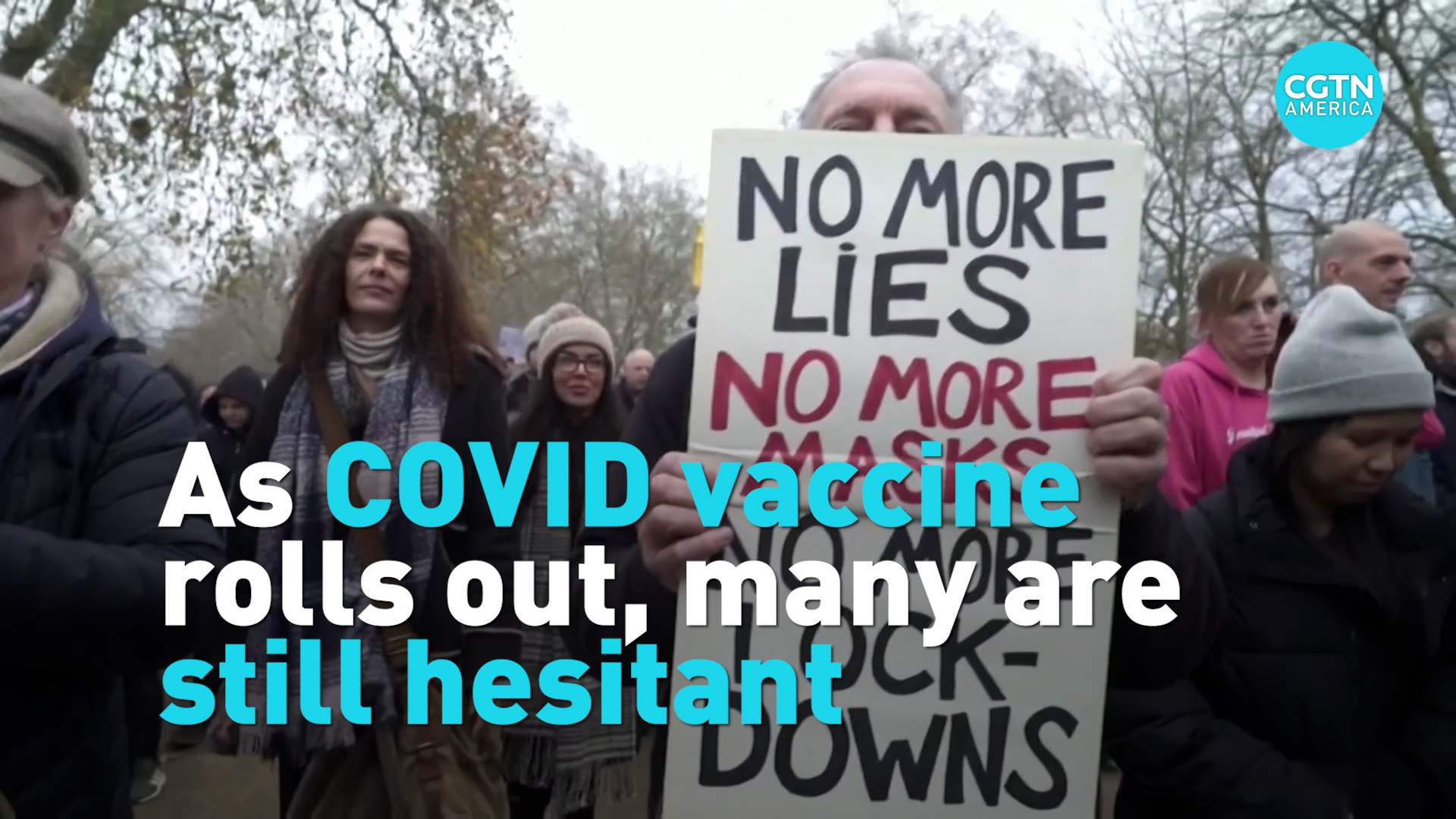02:47

Injections of Pfizer’s COVID-19 vaccine have begun in the United States providing some light at the end of a very long and dark tunnel. But many challenges remain including convincing vaccine skeptics to take the vaccine. The global anti-vaccine movement has been growing and many blame social media for amplifying false information related to vaccines. Facebook has made changes to its policies but some wonder if it’s too little, too late.
The global anti-vaccine movement has been growing for years and according to a report by the Center for Countering Digital Hate, social media is largely to blame. Its research shows that since 2019, social media accounts associated with anti-vaccine content have added close to eight million followers bringing the total to almost 60 million.
"Anybody can be a producer of information and a disseminator of information. So there’s absolutely zero, nil gatekeeping on these issues," said Vish Viswanath, Professor of Health Communication, Harvard T.H. Chan Schools of Public Health.
Facebook recently announced it would ban anti-vaccine ads and remove posts making debunked claims about COVID-19 vaccines on Facebook and Instagram.
In a blogpost, the company said: "This is another way that we are applying our policy to remove misinformation about the virus that could lead to imminent physical harm. This could include false claims about the safety, efficacy, ingredients or side effects of the vaccines."
Viswanath says only a small number of anti-vaccine followers are totally against taking the vaccine. He says the majority are undecided.
"We are concerned about this middle group who are trying to be compliant, who are trying to do the right thing by their children but they also have questions and the anti-vaccine groups are trying to reach that group," he said.
Infectious disease experts, like Anthony Fauci, say more than 70 percent of the population needs to be vaccinated to reach herd immunity.
Polls indicate a growing number of Americans – around 70 percent of them - are willing to get the COVID-19 vaccine today. But roughly 25 percent are still vaccine hesitant.
Viswanath says for the COVID-19 vaccine rollout to be a success better messaging is required that acknowledges legitimate questions and fears about the new vaccine while amplifying the voices of respected health experts to build trust in its safety.
Check out The China Report, our new weekly newsletter. Subscribe here!

